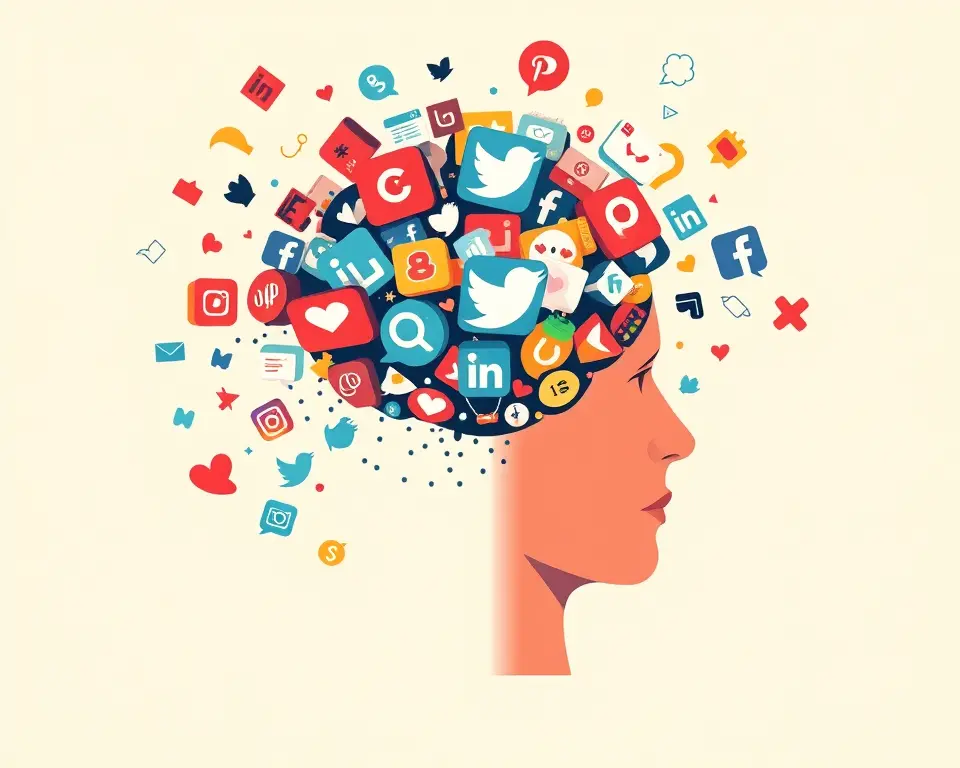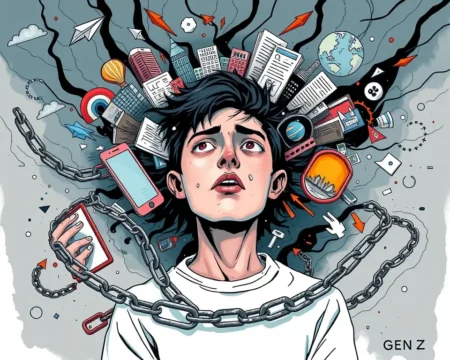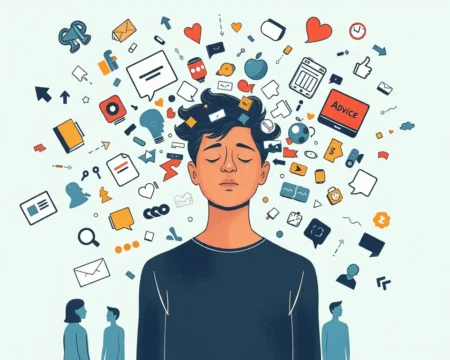TikTok, the land of viral dances and quirky challenges, has also become a surprising hub for mental health advice. From quick tips to manage anxiety to hacks for boosting self-esteem, the platform is flooded with bite-sized content promising to improve your mental well-being. But in a world of 60-second solutions, can these viral life hacks genuinely help, or are they just another fleeting trend? Let’s dive into the reality behind TikTok’s mental health boom.
The Allure of TikTok’s Mental Health Hacking
Accessibility and De-stigmatization
One of the most significant benefits of TikTok’s mental health content is its accessibility. Mental health information, once confined to therapists’ offices and academic journals, is now readily available to anyone with a smartphone. This democratization of knowledge can be incredibly empowering, especially for young people who may not have access to traditional mental healthcare.
Moreover, TikTok has played a crucial role in destigmatizing mental health. By sharing personal stories and experiences, creators are normalizing conversations around mental health struggles, making it easier for others to seek help and support. This sense of community can be particularly comforting for those who feel isolated in their experiences.
The Rise of “Cozymaxxing” and Self-Care Trends
Trends like “cozymaxxing,” which focuses on creating a comforting and stress-free environment, have gained traction on TikTok. These trends encourage users to engage in self-care activities like wrapping themselves in blankets, lighting candles, and enjoying calming music. Experts suggest that cozymaxxing can reduce stress, improve emotional regulation, and promote better sleep quality by signaling safety to the brain and reducing cortisol levels.
A Platform for Self-Discovery
Research indicates that TikTok can offer users a sense of self-discovery and community. The platform’s algorithm connects people with similar interests and experiences, fostering supportive online environments. For many, TikTok provides a space to explore their identities and find others who understand what they’re going through.
The Dark Side of Viral Mental Health Advice
Misinformation and Oversimplification
Despite its benefits, TikTok’s mental health landscape is fraught with risks. One of the most significant concerns is the prevalence of misinformation. Studies reveal that a large percentage of mental health advice on TikTok is misleading, with some reports suggesting that over 80% of the content lacks accuracy.
TikTok’s short-form video format often leads to the oversimplification of complex mental health conditions. Nuances are lost, and conditions like ADHD or OCD are reduced to catchy soundbites, potentially leading to misunderstandings and misdiagnoses.
The “Undiagnosis” Trend and Self-Diagnosis
The “undiagnosis” trend, where users self-diagnose and then declare themselves “undiagnosed,” is particularly alarming. Mental health experts caution that this trend can spread misinformation and downplay serious conditions. Diagnosing a mental illness is a complex process that requires professional evaluation, and self-diagnosis based on TikTok videos can be misleading and harmful.
The Algorithm’s Double-Edged Sword
TikTok’s algorithm, while connecting users with relevant content, can also create negative spirals. Users searching for mental health information may find themselves bombarded with content that exacerbates their anxieties and fears. This algorithmic feeding frenzy can lead to a cycle of hyper-awareness and self-doubt, potentially worsening mental health struggles.
The Dangers of Unqualified Influencers
Many TikTok creators offering mental health advice lack formal qualifications and expertise. Unlike licensed mental health professionals who undergo rigorous training and adhere to ethical guidelines, these influencers may disseminate inaccurate information, promote unproven treatments, or exploit vulnerable individuals seeking guidance. This lack of ethical oversight can result in unintended harm, including worsening symptoms and delaying appropriate treatment. A study found that only a small percentage of TikTokers advising on mental health topics have relevant qualifications, highlighting the risk of receiving advice from unqualified sources.
The Validation Trap
TikTok’s design encourages users to seek validation through likes, comments, and shares. This can reinforce self-diagnosis behaviors, as peers validate concerns without professional insight. The platform’s algorithmic feedback loop amplifies this effect, potentially pushing users toward increasingly extreme content and creating a cycle of hyper-awareness and self-doubt.
Real-World Impact: Studies and Concerns
Increased Anxiety and Depression
Multiple studies have linked heavy social media use, including TikTok, to an increased risk of depression, anxiety, loneliness, self-harm, and even suicidal thoughts. The addictive nature of social media, driven by dopamine release, can lead to a constant need for validation and approval, impacting self-esteem and overall well-being.
Body Image Issues and FOMO
Social media platforms like TikTok often focus heavily on physical appearance, with filters and edited images creating unrealistic beauty standards. Constant exposure to these altered images can lead to feelings of self-consciousness and dissatisfaction with one’s own appearance. Additionally, social media can increase feelings of FOMO (fear of missing out), as users compare their lives to others’ highlight reels, triggering anxiety and depression.
Cyberbullying and Social Isolation
Cyberbullying is a pervasive issue on social media, with many users subjected to offensive comments and harassment. This can severely impact self-esteem and mental health. Ironically, despite being designed to connect people, spending too much time on social media can lead to feelings of loneliness and isolation, exacerbating mental health problems.
Sleep Problems and Brainrot
Excessive use of TikTok and other short-form video platforms can alter how the brain develops and functions. Over time, this can desensitize the brain’s natural reward pathway, making everyday activities feel boring in comparison. Additionally, the blue light emitted from screens can disrupt sleep patterns, leading to further mental health challenges.
Navigating TikTok Safely: A User’s Guide
Question Credentials and Data
When consuming mental health content on TikTok, it’s crucial to question the credentials of the content creators. Are they licensed professionals with relevant expertise? Do they back their advice with scientific data and references? Be skeptical of quick fixes, all-or-nothing statements, and emotionally charged language.
Verify Information and Seek Multiple Perspectives
Always verify information from TikTok with trusted sources, such as professional organizations like the National Alliance on Mental Illness (NAMI) or the American Psychological Association (APA). Seek multiple perspectives and consult with a mental health professional for personalized advice.
Be Mindful of Your Consumption
Pay attention to how TikTok makes you feel. If you’re experiencing increased anxiety, depression, or feelings of inadequacy, it may be time to re-evaluate your relationship with the platform. Set time limits, unfollow accounts that trigger negative emotions, and prioritize real-world connections.
Use TikTok as a Tool, Not a Therapist
TikTok can be a valuable tool for learning about mental health and finding community, but it should not replace professional therapy. If you’re struggling with a mental health condition, reach out to a licensed therapist or counselor for evidence-based treatment and support.
Focus on Balance
Balance your time on TikTok with other activities that promote well-being, such as exercise, spending time in nature, and engaging in hobbies. Prioritize self-care activities that help you relax and recharge, and avoid using TikTok as a primary coping mechanism for distress.
TikTok’s Response: Efforts to Improve Mental Health Content
TikTok is taking steps to address the concerns surrounding mental health content on its platform. These efforts include:
Expanding Mental Health Education Fund
TikTok created the Mental Health Education Fund in 2023 to support organizations in creating authoritative and engaging mental health content. The fund has helped these organizations reach millions of users, gain new followers, and recruit volunteers.
Introducing In-App Meditation
TikTok is launching in-app guided meditation exercises to promote well-being and encourage users to switch off at night. These meditations are designed to improve sleep quality and reduce stress.
Providing Resources and Support
TikTok partners with mental health organizations to provide resources and support to users in need. The platform also offers tools for users to report harmful content and access mental health services.
The Future of Mental Health on TikTok
TikTok’s impact on mental health is complex and multifaceted. While the platform offers valuable opportunities for education, community, and destigmatization, it also poses significant risks related to misinformation, unqualified advice, and algorithmic manipulation.
Moving forward, it’s essential for users to approach TikTok’s mental health content with caution and critical thinking. By questioning credentials, verifying information, and prioritizing balance, individuals can harness the benefits of the platform while protecting their mental well-being.
TikTok also has a responsibility to continue improving its content moderation policies, promoting accurate information, and supporting mental health organizations. By working together, users and the platform can create a safer and more supportive online environment for mental health discussions.
In conclusion, TikTok’s viral life hacks may offer some helpful tips and insights, but they are not a substitute for professional mental healthcare. The key is to use TikTok as a starting point for learning and exploration, while always seeking guidance from qualified experts when needed.










